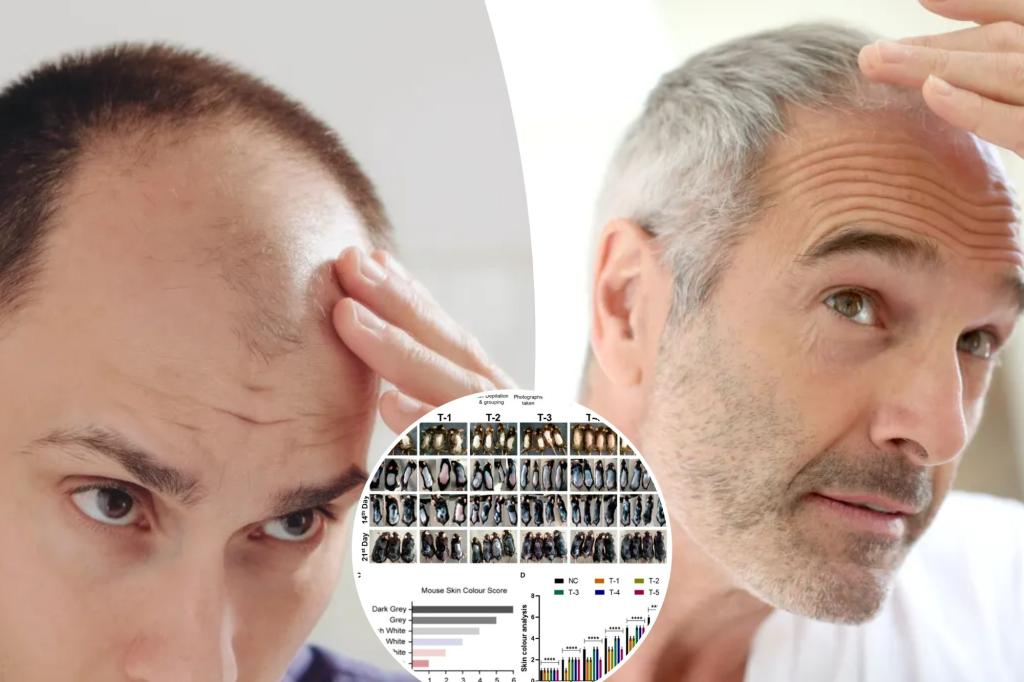Researchers from the University of Sheffield in England and COMSATS University in Pakistan have potentially discovered a revolutionary cure for male pattern baldness, a genetic condition that affects a significant portion of the population. They stumbled upon this finding while studying the healing properties of naturally-occurring deoxyribose sugar. Applying the sugar to wounds of lab mice led to regrowth of hair around the lesions, prompting further investigation into its effects on hair regrowth in male mice with testosterone-driven hair loss.
The researchers found that the deoxyribose sugar treatment helped form new blood vessels, which ultimately led to hair regrowth in the male mice. This discovery has led to the suggestion that a simple treatment using deoxyribose sugar could potentially boost blood supply to the hair follicles and encourage hair growth. Preliminary studies found the gel treatment to be as effective as minoxidil, a common treatment for hair loss known by the brand name Rogaine. However, minoxidil does not work for everyone who suffers from hair loss, making the potential new treatment an exciting possibility for those seeking alternatives.
Currently, the FDA has approved only two drugs, minoxidil and finasteride (brand name Propecia), for the treatment of hereditary-patterned baldness. Finasteride, which is approved for men but not women, has been shown to slow hair loss in a high percentage of patients. However, the drug is also associated with potential side effects such as depression, erectile dysfunction, reduced libido, testicular pain, and suicidal ideation. Some individuals opt for alternative treatments such as laser therapy or transplant surgery to address their hair loss concerns.
Anti-aging expert Bryan Johnson advocates for a comprehensive approach that includes red-light therapy, micro-needling, and topical treatments to address hair loss. The promise of a noninvasive baldness gel treatment represents a potential medical breakthrough in the field due to its simplicity, safety, and effectiveness. If the deoxyribose gel treatment proves successful in human trials, it could also have implications for treating other conditions such as alopecia and stimulating hair regrowth after chemotherapy.
The researchers emphasize the need for more research in this area, noting the lack of effective treatments for hair loss. While the results of their initial studies are promising, they caution that further investigation is required to fully understand the potential of the deoxyribose sugar treatment for baldness. If successful, this treatment could offer a safe and viable option for individuals seeking to address male pattern baldness and other forms of hair loss. Ultimately, this innovative approach has the potential to revolutionize the treatment of hair loss and provide hope for those struggling with this common condition.


